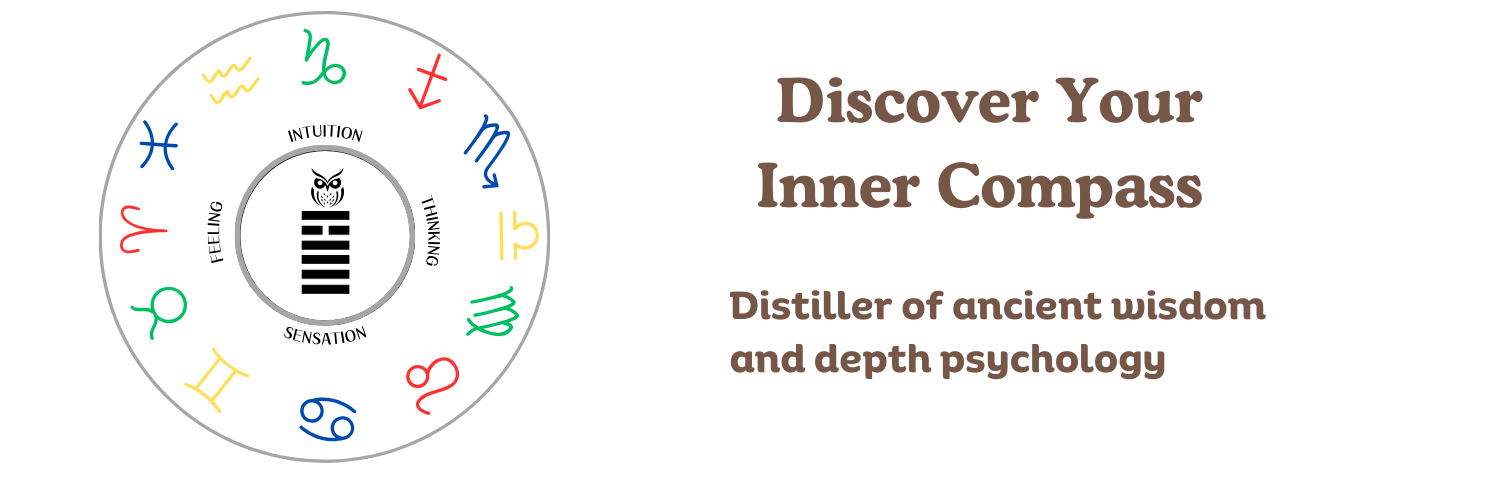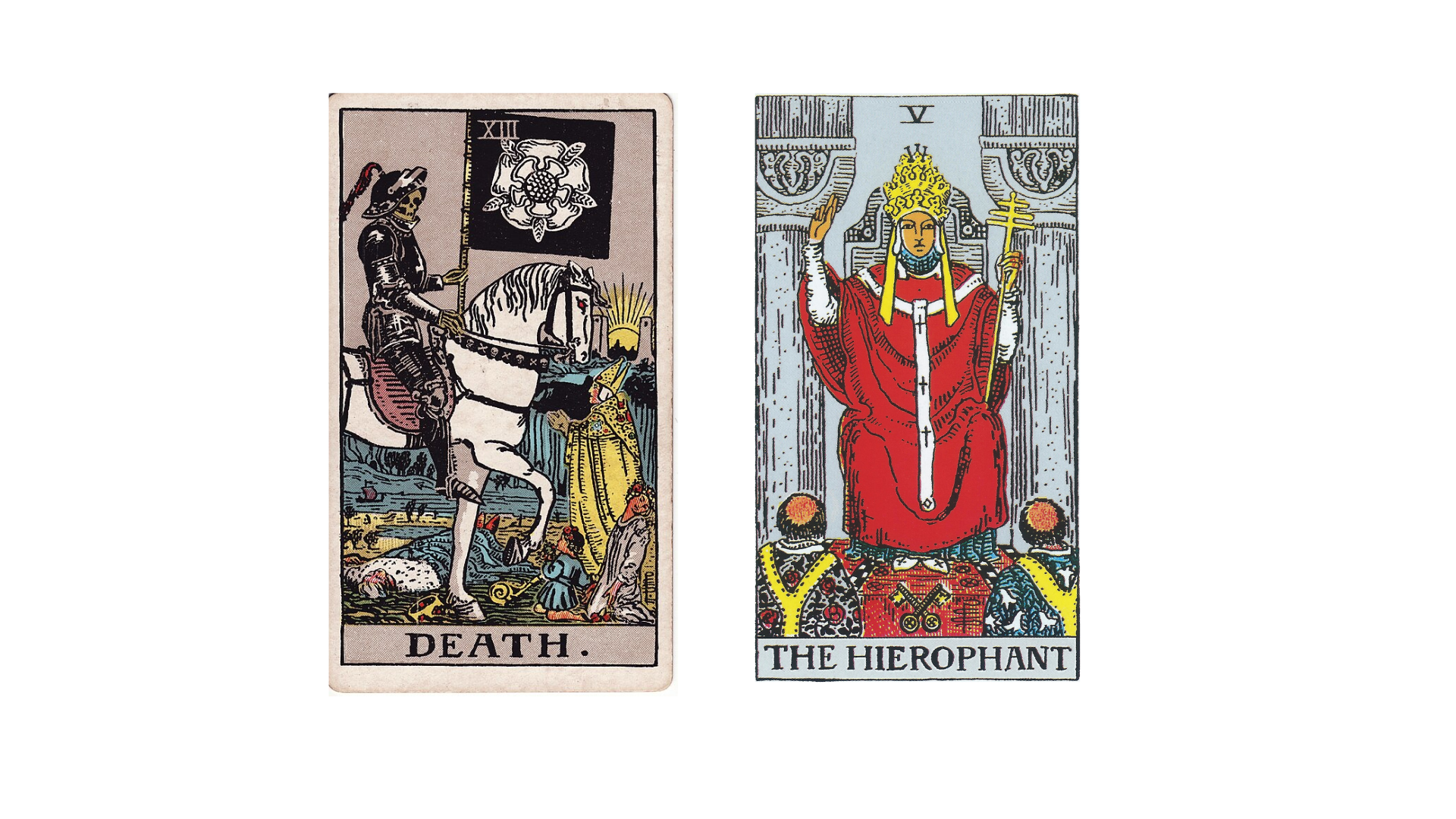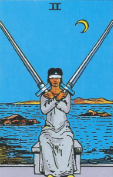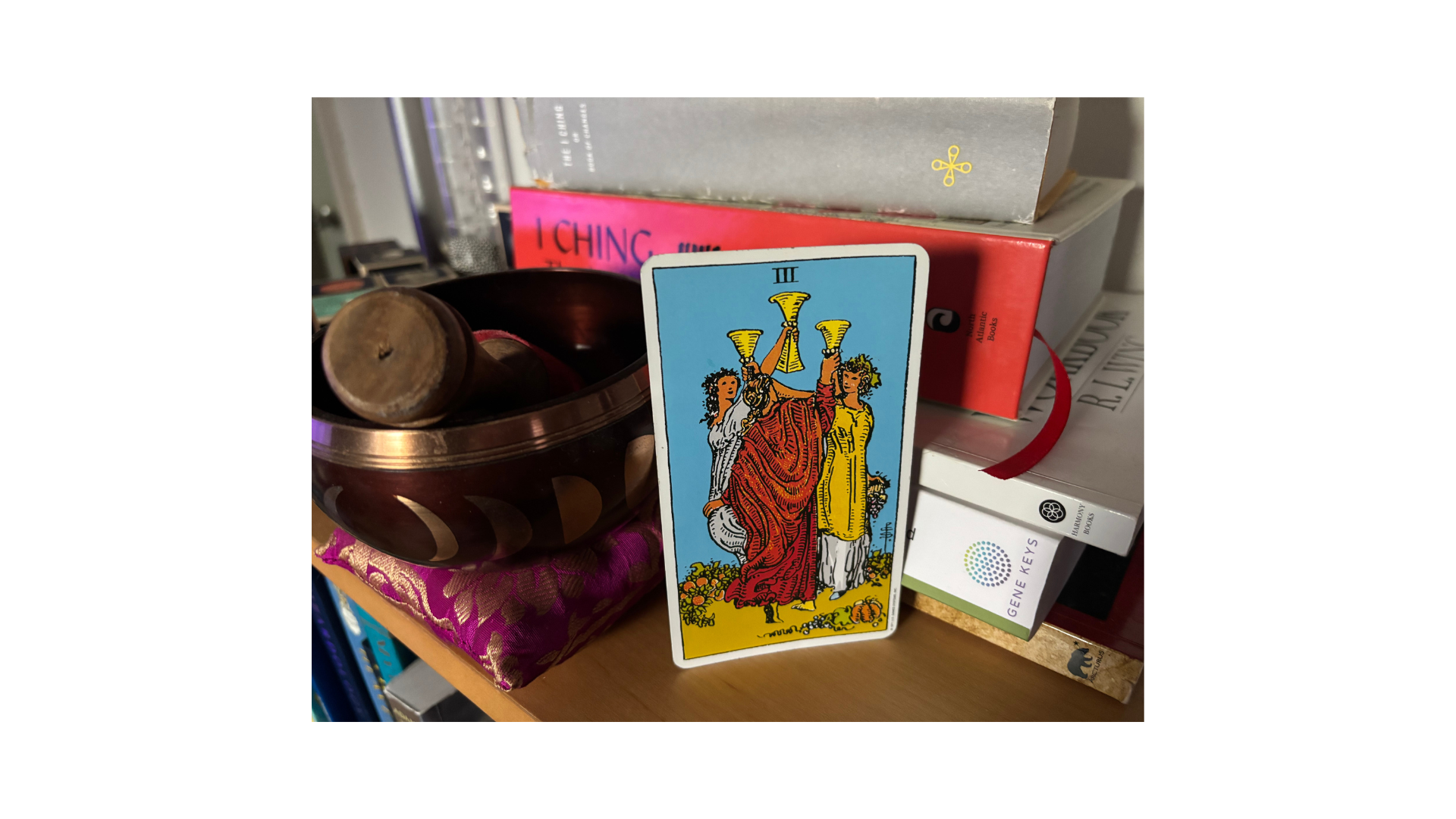The art of letting things happen
The intersection of personality type and astrology always interests me (typestrology, if you will). So I was intrigued to discover that Dane Rudhyar describes the 12 zodiacal types in his book An Astrological Triptych.
He posits that we have a dominant zodiacal type comparable to the Jungian psychological types.
Our type has both a creative function and a basic need. He says spirit brings us a gift that is meant to “fill the emptiness” produced by the one-sidedness of our type.
Dane Rudhyar describes the one-sidedness of each of the 12 signs and says curious and eager Gemini needs to learn “the art of letting things happen. He must learn to pause and wait. He must learn to understand first, to act afterward (p. 22).”
Failure to do so can lead to what Jung calls a “cramp in the conscious,” which results from too much mental activity.
Again I think of the 8, 9, and 10 of Swords cards of the tarot that are associated with Gemini, as I wrote about in my last post.
Those images speak to the need to wait, which is contrary to Gemini’s nature, and the chrysalis stage before transformation.
Jupiter, the planet of wisdom, is still in Gemini until July. Jupiter rules Sagittarius, Gemini’s opposite sign. In Rudhyar’s advice here we see how to reconcile the opposites of Jupiter and Mercury (Gemini’s ruler):
Wisdom is not to be rushed into: it is to be received from the wholeness of life by the wholeness of one’s nature. Wisdom which is of the spirit is a gift. It is a gift because it comes to the recipient as a completed whole. He does not piece it together, part by part, hurriedly putting forth a scaffold and throwing into it every bit of available material. Wisdom is a gift. One must not force the giving of gifts (Rudhyar, p. 24).
Today there is a New Moon in Gemini and New Moons are seeding moments. Rudhyar uses a seed analogy in describing how Gemini must receive its gift:
All seeds mature slowly; wisdom and integration are of the nature of seeds. One must grow into them, effortlessly, serenely, in faith and in beauty (p. 25).
_____________________
Consultations:
Astrology | Tarot | Typestrology | Tarot and Type
Writing:
Subscribe to the Reading in Depth monthly newsletter
Get blog posts for free by email or on Substack (also free)
Index to my popular blog posts about personality typology











